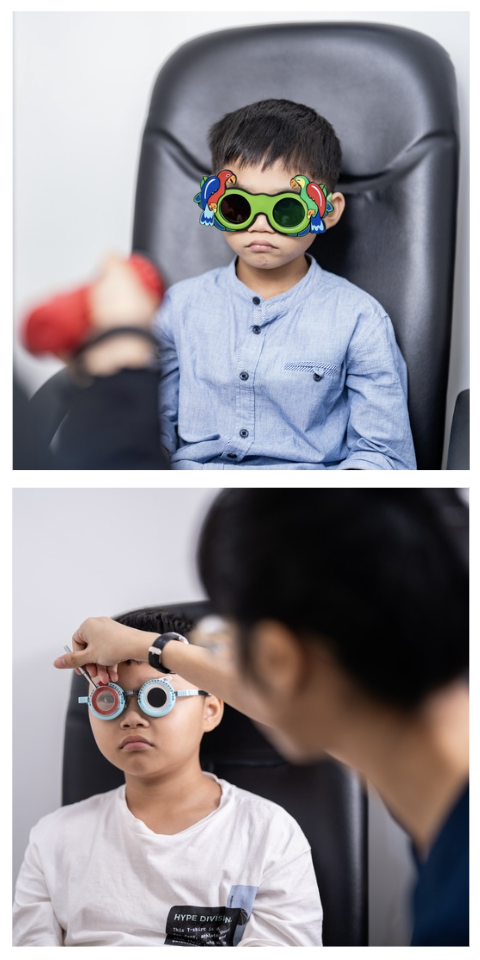Myopia
What is Myopia?
Myopia, commonly known as nearsightedness, is a condition where you can see nearby objects clearly but struggle to see distant objects. For instance, if you have myopia, highway signs may remain blurry until you're very close to them. This widespread eye focus disorder is typically corrected with eyeglasses, contact lenses, or surgical options.
Myopia Symptoms:
What to look out for in your kid?


What Causes Myopia?
Myopia, or nearsightedness, is often influenced by both hereditary and environmental factors. If one or both of your parents have myopia, you are more likely to develop it as well. The exact cause is not fully understood, but it is believed to be a combination of genetics and lifestyle.
Myopia usually develops during childhood and can worsen in early years, typically stabilizing by late adolescence. It occurs when light entering the eye does not focus properly, causing distant images to appear blurry—similar to a spotlight that shines in the wrong direction.

What are the risk factors for Myopia?



What myopia control treatments are available?
Low-dose atropine eye drops have proven effective in slowing the progression of near-sightedness (myopia) in children. Unlike traditional atropine, which dilates the pupil, the low dose used for myopia control minimally affects pupil size and does not cause blurred near vision. This treatment is well-tolerated in children and has been shown to reduce myopia progression in studies worldwide, with a daily application recommended for 1-2 years.
Myopia control glasses feature a specialized lens design that provides clear distance vision in the center while reducing lens power at the edges, a technique called peripheral defocus. This helps shift light focus onto the retina, which can slow myopia progression over time. Peripheral defocus is essential because it addresses the tendency of light to focus in front of the retina in myopic eyes, causing blurry distance vision. By slowing myopia progression, these glasses can enhance long-term vision quality for individuals with near-sightedness.
Ortho-K and soft contact lenses both effectively manage myopia with different approaches. Ortho-K lenses are worn overnight to reshape the cornea, improving focus on the retina and reducing myopia progression by around 50%. Soft contact lenses, including dual-focus and multifocal designs, are worn full-time, providing vision correction and slowing myopia progression while enhancing comfort, confidence, and activity engagement in children and teens.
Take the first step towards better eye health today!
Book your appointment now !
Your Trusted Eye Specialist Centre.
Your vision is our priority
our expert team is ready to help you see the world clearly!

